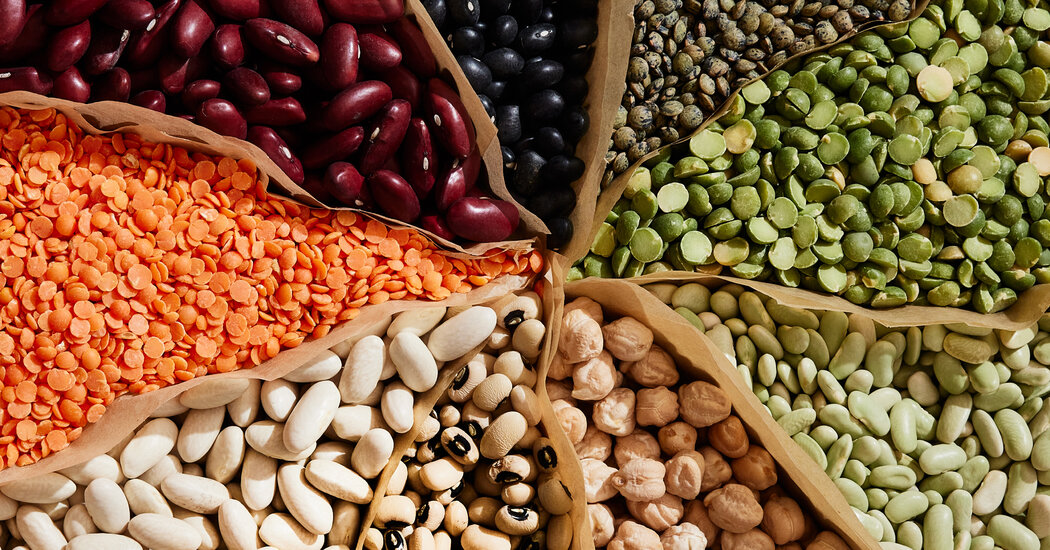
This is Day 3 of Well’s Mediterranean Diet Week. Start at the beginning here.
If I had to choose just one food to always have on hand, it probably would be lentils. They’re quick to cook and comforting; my mom’s lentil soup was a staple of my childhood. But I’d also take any of the other legumes — chickpeas, black-eyed peas, cannellini beans, kidney beans.
Legumes are a key source of plant-based protein in the Mediterranean diet; one cup of cooked beans, lentils or peas contains about 15 grams of protein — just under a quarter of the daily needs of an average adult. And research suggests that people who get more of their protein from plant (rather than animal) sources tend to live longer, healthier lives.
One cup of legumes also contains about 13 grams of fiber, or roughly half of your daily recommended amount. Fiber helps keep your digestive system running smoothly, feeds friendly gut microbes and is thought to trap cholesterol in the intestines, which may explain the research suggesting that eating legumes can lower your levels of LDL (or “bad”) cholesterol. Researchers have also linked legumes to improved blood sugar levels and reduced risks of coronary heart disease.
Legumes supply several vitamins and minerals, including iron, which is necessary for oxygen delivery to cells; magnesium, which helps regulate blood pressure and blood sugar; folate, essential for pregnancy and cell function; and vitamin E, which supports the immune system and protects against cell damage.



